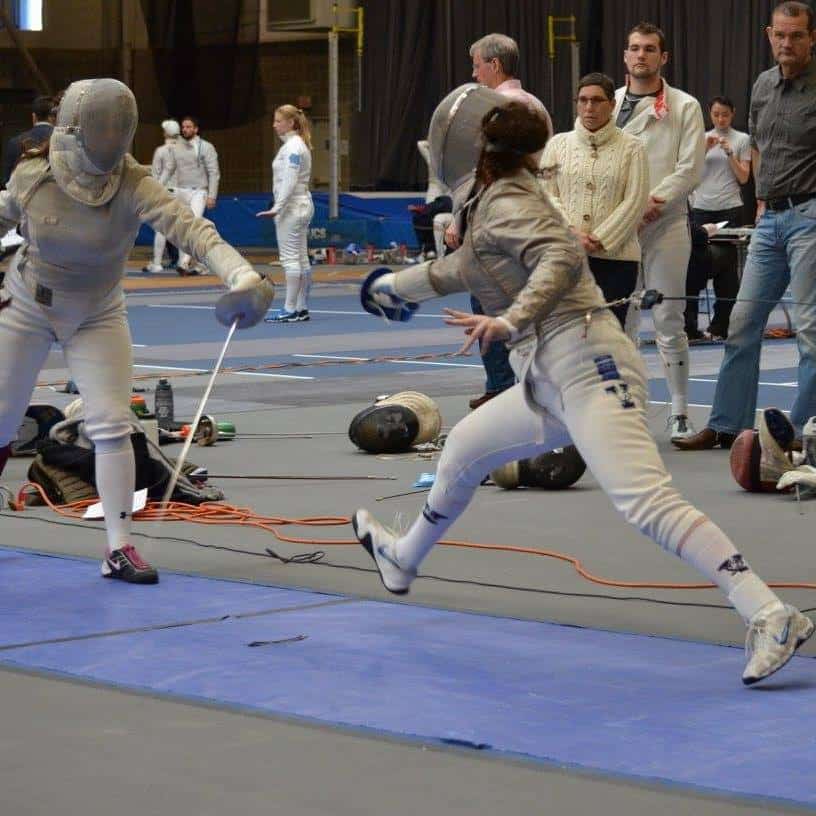Activist Spotlight: Lillie Lainoff – Writer
Lillie Lainoff always wanted to be a writer. When she came home from her first day of kindergarten with her first short story—two sentences about a girl with a pet goldfish—she announced that this was what she wanted to do for the rest of her life.
“Something I’ve come to truly appreciate about our community is the variety of forms our activism takes,” explains Lillie, who didn’t always call herself as an activist as easily as she adopted the title of writer. “In my writing, the disabled body is not a symbol or a metaphor, or something frightening, but something natural. Most of all, I want to give disabled girls a chance to see themselves in the books they read.”
Lillie first began to see her writing as a form of activism when she published a piece on Hollywood’s representation of disability in the Washington Post. The online version of the article reached the number one spot on Outlook’s opinion section, and she began receiving responses from readers, both in the disability community and outside it. “I keep a number of emails from readers pinned to a corkboard above my desk,” says Lillie, “to remind me what I’m fighting for.”

A recent graduate of English at Yale University, Lillie mainly writes young adult fiction. Right now, she’s working on a historical fiction novel about a fencer who has postural orthostatic tachycardia syndrome (POTS) like she does, and draws inspiration from the challenges she has faced as a disabled athlete. Lillie was one of the first physically disabled athletes to individually qualify for an NCAA Championship in 2017, her final year of NCAA eligibility. “I’d been struggling with a serious back injury since sophomore year, so I prepared myself for this to be one of those goals that I needed to let go,” she says about her qualification. “But it ended so much better this way—I qualified at home in front of my family and friends.”
Her thesis while at Yale was a series of short stories about the intersection of disability and femininity, in the context of personal relationships. All the main characters in the stories are young women who are learning to navigate social expectations and their own bodies. Lillie hopes to apply for Master of Fine Arts programs for fiction writing next December, and in the meantime, she’ll be working on writing her novel (and fencing, of course).
Balancing her athleticism with her writing has always been a challenge for Lillie, since she was recruited for college as a varsity athlete. During her junior year, she was a fencing team manager, the managing editor for the Yale Daily News Magazine, a writing partner at the campus writing center, a writer for Yale Sports Publicity, and she wrote her novel, The Keeping House. Despite keeping so busy, one of the accomplishments she’s most proud of is fighting for accessibility in the application process for Yale’s creative writing concentration. As part of a student advisory committee, she pushed for a more inclusive admission process that made the concentration more open and less competitive.

Lillie is represented by Jennifer Wills and Nicole Resciniti of The Seymour Agency for The Keeping House, the first in a young adult speculative fiction trilogy about a world where the disabled are hunted and persecuted (with a cast of almost all disabled characters). It wasn’t the first book she queried, and she admits that writing isn’t always easy—in fact, it’s anything but, especially if you want it to be your career. Her advice to other writers, whether they have disabilities or not, is to keep trying and not give up when you receive rejection letters or radio silence from literary agents and editors. “I’d written other novels before, but never anything like this. It was never just a novel,” Lillie says, “It was a love letter to myself. To my body.”
To Lillie, her work is part of a larger movement for inclusive representation of the disability community in young adult fiction. “When we erase a group of people’s stories from literature, we’re telling them that their stories don’t matter,” Lillie explains. “For [children’s literature] and YA, this can have a huge impact on us as readers, given that these are the first stories many of us will ever read in our lives. I write YA disability rep because when I was a freshman in high school and dealing with a brand new diagnosis, I needed to know I wasn’t alone.” She thinks she might have identified with disability pride and as a disabled person earlier if she had seen herself represented in the media, in the books she read as a teenager.
She hopes that by telling these stories, she’ll give disabled teen girls permission to exist in a world that so often tells them they don’t.
About Rooted In Rights
Rooted in Rights exists to amplify the perspectives of the disability community. Blog posts and storyteller videos that we publish and content we re-share on social media do not necessarily reflect the opinions or values of Rooted in Rights nor indicate an endorsement of a program or service by Rooted in Rights. We respect and aim to reflect the diversity of opinions and experiences of the disability community. Rooted in Rights seeks to highlight discussions, not direct them. Learn more about Rooted In Rights



